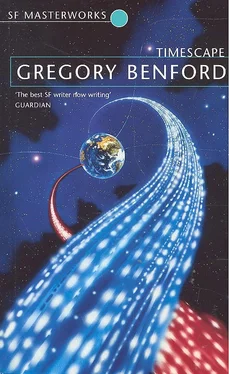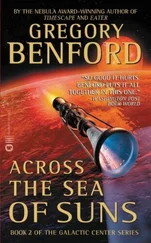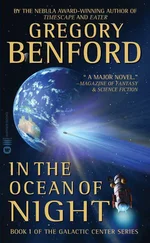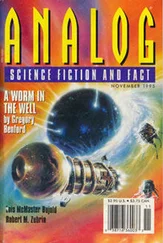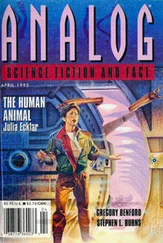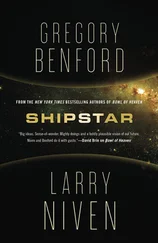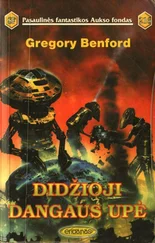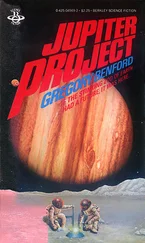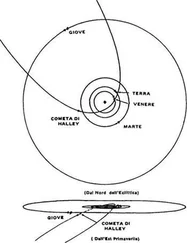As he approached a bus queue something caught his attention. A black man in tennis shoes was standing at the end of the line, eyes dancing, his head jerking as if on wires. Markham came up close to him and muttered, “Bobby round the corner,” and moved on. The man froze. “Huh? Wha?” He looked wildly around. He eyed Markham. A hesitation, then he decided—he raced off in the opposite direction. Markham smiled. The standard tactic was to wait until the bus hauled up and the queue’s attention was focused on getting aboard. Then you grabbed purses away from a few women and left in high gear. Before the crowd could redirect its attention you were streets away. Markham had seen the same maneuver in Los Angeles. He realized, a bit ruefully, that he might not have recognized the setup if the man hadn’t been black.
He strolled down the High Street. Beggars’ hands appeared magically when they saw his American jacket, and then disappeared quickly as he scowled. On the corner of St. Andrews and Market streets was Barrett’s barber shop, a faded sign proclaiming, “Barrett is willing to shave all, and only, men unwilling to shave themselves.” Markham laughed. This was a Cambridge insiders’ joke, a reference to the local logical trickery of Bertrand Russell and the mathematicians of a century ago. It yanked him back towards the problem that was bothering him, the tangle of reason surrounding Renfrew’s experiments.
The obvious question was, “But what about Barrett? Who can shave poor old Barrett?” If Barrett were willing to shave himself, and if the sign were true, then he was not willing to shave himself. And if Barrett wouldn’t shave himself, then according to his sign he was willing to shave himself. Russell had devised this paradox, and tried to solve it by inventing what he called a “meta-sign” which said, “Barrett shall be excluded from the class of all men to whom the first sign refers.” That sewed up the problem nicely for Barrett, but in the real world things weren’t so easy. Peterson’s suggestion this morning, about not sending the message about the bank, had disturbed Markham more than he had wanted to show. The trouble with the whole tachyon theory was that the causal loop idea didn’t fit our own perception of time as moving forward. What if they didn’t send the bank message? The neat little loop, with arrows passing from future to past and back again, was flawed. It didn’t have any human beings in it. The aim of a modern physical theory was to talk about reality as independent of the observer—at least, as long as quantum mechanics was left out. But if Peterson was in the causal loop, he had the ability to change his mind at any time, and change the whole damn thing. Or did he? Markham paused, looking through the filmed glass at a boy getting his amber hair cut. Where was human free will in this puzzle?
The equations were mute. If Renfrew succeeded, how would the things around them change? Markham had a sudden, sinking vision of a world in which the ocean bloom simply had not happened. He and Renfrew and Peterson would emerge from the Cav to find that no one knew what they were babbling about. Ocean bloom? We solved that ages ago . So they would be madmen, a curious trio sharing a common delusion. Yet to be consistent, the equations said that sending the message couldn’t have too great an effect. It couldn’t cut off the very reason for sending the tachyons in the first place. So there had to be some self-consistent picture, in which Renfrew still got his initial idea, and approached the World Council, and yet…
Markham shook himself out of the mood, feeling an odd chill run through him. There was something deeper here, some crucial missing physics.
He walked rapidly away, disturbed. A cricket game lazily wound through the afternoon on the large pie-shaped ground known as Parker’s Piece. The mathematician G. H. Hardy had watched games there a century before, Markham mused, and often lazed away the afternoon just as he was doing now. Markham could understand the motivation of the game, but not the details. He had never got straight the cricket jargon—square leg, silly mid-on, silly mid-off, cover point, short extra cover—and still never quite knew when a good play was made. He walked behind the ranks of spectators, who were slumped in their canvas chairs, and wondered what the cricket watchers of a century ago would’ve thought of the England of now. He suspected, though, that like most people even today, they assumed that tomorrow would be pretty much the same as the present.
Markham angled down Regent Street and past the University Botanic Garden. Beyond lay a boys’ school. Dispensing the norms and graces of the upper classes , in a king’s ancient phrase. He strolled through the arched entranceway and paused at the school announcements board. The following have lost their personal possessions. They will call at the Prefect’s Study by Thursday 4th June .
No “please.” No unnecessary softenings; simply a direct statement. Markham could imagine the brief conversation: “I’m sorry, you see—” “Standard punishment. Fifty lines, best handwriting. I’ll have them tomorrow at break.” And the student would grind out, My carelessness with my personal property will cease .
The fact that the student might well use one of the recent voice-writers for nearly all his school work didn’t matter; the principle reigned.
Odd, how forms held on when everything else—buildings, politics, fame—fell away Maybe that was the strength of this place. There was a timelessness here, too fragile for California’s dry air to hold. Now that full summer had arrived with a flourish, the mannered ways of the schools and colleges seemed even older, a slice of worn time. He found his own spirits lifting at the release from the endless raw winter and the rainy spring.
He felt his mind veering away from the tachyon question, seeking refuge in this comfortable aura of the past. It was different for him here, he knew. Englishmen were fish swimming in this sea of the past. For them it was a palpable presence, a living extension, commenting on events like a half-heard stage whisper. Americans regarded the past as a parenthesis within the running sentences of the present, an aside, something out of the flow.
He walked back towards the colleges, letting this feel of the press of time seep into him. He and Jan had been to High Table at several of the colleges, the ultimate Anglophile experience. Memorial plate that gleamed like quicksilver, and crested goblets. In the after-dinner room of polished wood, gilt frames held glowering portraits of the college founders. In the great dining hall Jan had been surprised to find de facto segregation: Etonians at one table, Harrovians at another, the lesser public schools’ alumni at a third, and, finally, state school graduates and everyone else at a motley last table. To an American in such a citadel of education, after the decades of ferocious equality-at-all-costs politics, it seemed strange. There persisted a reliance on inherited advantages, and even the idea that such a system was an inherited virtue as well. The past hung on. You could be quite up to the minute, quite knowing about the zack-o latin riffs of Lady Delicious, and yet sit quietly and comfortably in choir stalls of King’s College chapel listening to cherubic lads in Elizabethan ruffs try to shatter the stained glass with treble attacks. It seemed that in a muzzy sense the past was still here, that they were all connected, and that the perception of the future as a tangible thing lived in the present, as well.
Markham relaxed a moment, letting the idea inside drift up from his subconscious. Walking was the gentle jog his mind needed; he had used the effect before. Something… something about the reality needing to be independent of the observer…
Читать дальше
